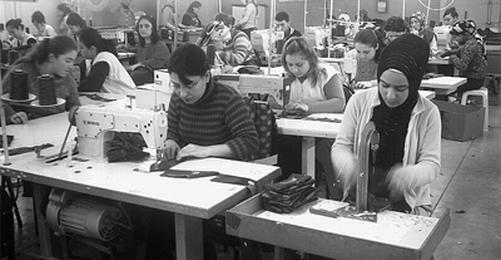Law 5920 permits the employment of temporary workers, and has been passed in parliament. Now it is up to President Abdullah Gül whether to ratify the law.
Trade union confederations DİSK and TÜRK-İŞ have called on the president to veto the law.
What are the implications of the law?
* With this law, there will be private employment agencies which will act as intermediaries between workers and employers. The agencies will "let out" the workers.
* The companies where the employers work will have not responsibilities for them. The agencies will deal with problems.
* These agencies will determine the employee's rights.
* The agencies will receive commission for every employee they "rent out".
The Turkish Employment Institute will give permission for agencies to open and will determine the contract conditions.
It is clear that the law will not favour workers, but it is yet not known what rights the agencies will acknowledge and whether there will only be "yellow unions", i.e. unions organised by companies, allowed.
No improvement in labour rights
When one looks at the employment situation in Turkey, it is clear that not much has changed for the better. Like in many old Turkish films, workers still hang around at manual labour markets, waiting for bosses to hire them at the price they determine.
The slavery of former kingdoms has been turned into the workers' slavery of capitalism, and this law is legitimising it even further.
Law 5920 has been hailed as a measure to deal with unemployment, yet this is not true.
No rights for temporary workers, pressure on permanent staff
"Temporary workers" will lead lives without human rights, never mind workers' rights or trade union rights. They will be treated not like humans, but like property, to be used by the bosses. The bosses will profit even more because the workers will not be shown as part of their workforce.
Contracts made with private employment agencies will put an end to the functions of trade unions, collective labour agreements, the right to strike and severance pay and will prevent employees from organising.
These "rented" workers will increase the pressure on steadily employed workers, who will be threatened by the presence of co-workers who work more cheaply and are not the responsibility of the employer.
The law foresees that a quarter of a company's employees may be temporary, and this situation will create problems both for temporary and permanent staff.
Ignoring the risk to their companies, many employers will favour cheap, less-qualified temporary labour over more qualified, more expensive permanent staff. (CS/EZÖ/AG)












